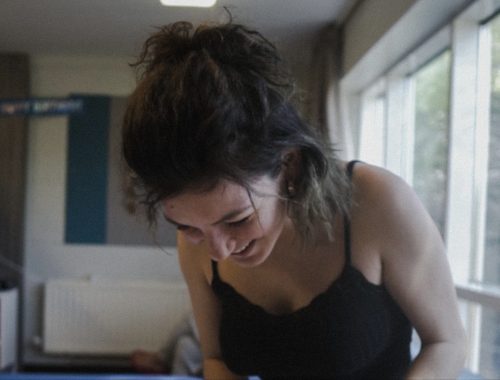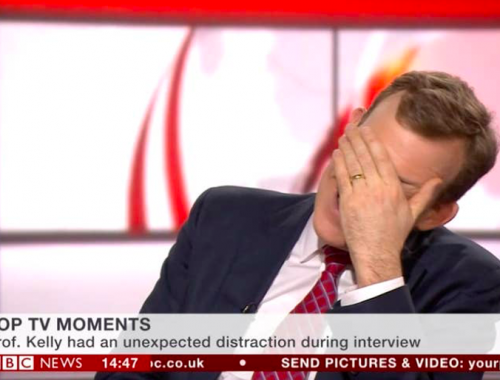SIMULATED INTERVIEWS: A Lesson in Confidence, Clarity and Preparedness

When I heard that we were to have simulated interviews in Week 3 my feelings were mixed. I saw the value in the exercise and appreciated the chance we would get to practice our interview skills in an interview environment that possessed none of the jeopardy of a real job interview, but at the same time I was slightly anxious. I would unfortunately have to admit that interviews have never particularly been my strong suit, and that is mainly down to the fact that I have tended to improvise and hope for the best with little to no preparation beforehand. This often resulted in excruciatingly poor answers to questions such as “what can you tell us about our company?” and genuine ignorance when questioned about a given company’s mission statement or ethos. Furthermore, I don’t particularly enjoy talking myself up. It goes against my natural inclination to modesty, and I generally don’t enjoy listening to other people doing it, but I understand how essential it is in an interview. As James Innes points out, on average there are at least five applicants for any given job that reach interview stage, which “at the most, gives you a 20 per cent chance of getting the job,” so you really do need to make clear your merits to a recruiter. (2) Additionally, even if you are the most qualified person on paper, it does not guarantee success, with some of the most able candidates shooting “themselves in the foot when they actually get to the interview.” (Innes, 1) With knowledge of my past failings in past interviews, I was determined to not make a fool of myself in the simulated interviews, even despite their lack of real-world impact.
I found a job as a Junior Editor for Channel 4, and I knew this was the job that I would interview for. It’s a career that I am genuinely interested in and may possibly pursue in reality. I made sure to research the position well and looked more in-depth at Channel 4 itself, although I was already very familiar with the channel. I felt like the interview went quite well on the day and based on the feedback I received my colleagues agreed that I did well. For the purposes of this blog post, I will utilise Gibbs’ Reflective Cycle as a means to reflect on the experience and gain greater insight into what I did well, and what I could improve for future interviews.

DESCRIPTION: In the interview I was asked about my level of experience in the field of editing, who my editing influences were and how I would describe my vision and editing style. I consciously talked at length when answering each of the questions, endeavouring to include as much relevant information as possible in each answer. Overall, the interview lasted for about 10 minutes.
FEELINGS: I felt quite confident and calm throughout the interview. I would have to say that this confidence and comfort was somewhat accentuated by the fact that I was being interviewed by friends, and that in a real interview with a recruiter my nerves would be heightened. To be honest, it did at times feel quite silly trying to be so serious when being interviewed for a job by your friends, but I found that being the interviewee was much less embarrassing than being the interviewer.
EVALUATION: Personally, I think that the interview went well. I was prepared and was confident that I knew about the job position well, and that I could relate my relevant experience to tick the necessary boxes that needed to be ticked. The feedback I received from my colleagues seems to reinforce this view, stating that I was a “natural and engaging speaker” and that I had a “clear understanding of the job description.” The one piece of constructive criticism I received was in relation to being more specific about the software I use to edit. This was a very obvious thing to mention, and it was clearly an oversight on my part to not mention it, but one that is easily corrected.
ANALYSIS: In terms of analysis, I can see that from the feedback I received and also my own general feeling about the success of the interview that I did quite well and conducted myself appropriately and effectively in the interview. I made sure that my answers were detailed and contained ample references to my own experience and skills, and this was noticed by the interviewers. However, despite all my efforts to be detailed, I neglected to mention the actual software I use to edit, which was a major oversight. Sometimes you can stumble on the simplest of things so all things, no matter how trivial they may seem, must be considered in an interview.
CONCLUSION: In conclusion I believe that the interview went well and that it was possibly the first interview I have ever done where I was sufficiently prepared and walked out happy with my performance. The preparation I put in for this interview should be something that I always do before any future interviews, and I am glad of the chance to be able to do this ahead of an interview without life-altering consequences.
ACTION PLAN: In the future I will put in the research and preparation ahead of the interview like I did for the simulated interviews. Knowing your stuff makes the actual interview massively easier and obviously drastically increases your chance of success. I will also make sure to process the question more in order to formulate more cohesive answers in which I do not omit any crucial details, such as which software I actually use to edit.
BIBLIOGRAPHY
- Gibbs, Graham. Learning By Doing: A Guide to Teaching and Learning Methods. Oxford: Oxford Further Education Unit, 1988
- Innes, James. The Interview Question & Answer Book. Pearson Business, 2013
A ‘Real’ Interview…
You May Also Like

Surprisingly Worthwhile
18 February 2022
So You Want To Be A Teacher?
17 February 2022

